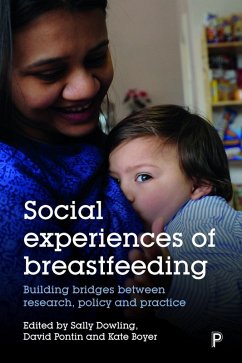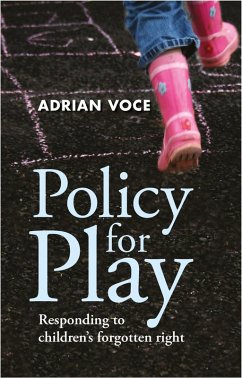
Narcissistic Parenting in an Insecure World (eBook, ePUB)
A History of Parenting Culture 1920s to Present
Versandkostenfrei!
Sofort per Download lieferbar
30,95 €
inkl. MwSt.
Weitere Ausgaben:

PAYBACK Punkte
15 °P sammeln!
In this provocative history of parenting, Harry Hendrick analyses the social and economic reasons behind parenting trends. He shows how broader social changes, including neoliberalism, feminism, the collapse of the social-democratic ideal, and the 'new behaviourism', have led to the rise of the anxious and narcissistic parent. The book charts the shift from the liberal and progressive parenting styles of the 1940s-70s, to the more 'behavioural', punitive and managerial methods of childrearing today, made popular by 'experts' such as Gina Ford and Supernanny Jo Frost, and by New Labour's parent...
In this provocative history of parenting, Harry Hendrick analyses the social and economic reasons behind parenting trends. He shows how broader social changes, including neoliberalism, feminism, the collapse of the social-democratic ideal, and the 'new behaviourism', have led to the rise of the anxious and narcissistic parent.
The book charts the shift from the liberal and progressive parenting styles of the 1940s-70s, to the more 'behavioural', punitive and managerial methods of childrearing today, made popular by 'experts' such as Gina Ford and Supernanny Jo Frost, and by New Labour's parent education programmes.
This trend, Hendrick argues, is symptomatic of the sour, mean-spirited and vindictive social norms found throughout society today. It undermines the better instincts of parents and, therefore, damages parent-child relations. Instead, he proposes, parents should focus on understanding and helping their children as they work at growing up.
The book charts the shift from the liberal and progressive parenting styles of the 1940s-70s, to the more 'behavioural', punitive and managerial methods of childrearing today, made popular by 'experts' such as Gina Ford and Supernanny Jo Frost, and by New Labour's parent education programmes.
This trend, Hendrick argues, is symptomatic of the sour, mean-spirited and vindictive social norms found throughout society today. It undermines the better instincts of parents and, therefore, damages parent-child relations. Instead, he proposes, parents should focus on understanding and helping their children as they work at growing up.
Dieser Download kann aus rechtlichen Gründen nur mit Rechnungsadresse in A, D ausgeliefert werden.













